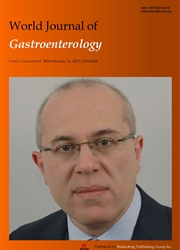

 中文摘要:
中文摘要:
瞄准:调查胃肠的流血(凹字形楔) 在到高高度的从低地的人并且在象处理和预防一样的山 Tanggula 和它的原因上的工人。方法:从 2001 到 2003 年 10 月,我们在在是在海水平上面的 4905 m 的山 Tanggula 上构造铁路的 13502 个工人学习了凹字形楔。在在不同高度的工人的凹字形楔的发生被记录。当工人撤离了到 Golmud (2808 m ) 和 Xining (2261 m ) 时,内视镜检查法被执行。高度凹字形楔上的可得到的数据被分析。结果:凹字形楔的全面发生在 13502 个工人是 0.49% 。发生与增加高度增加了。在大多数病人的症状的发作在在在高高度的到达以后的三个星期以内。因为吐血, melaena 或便血,和力量是秘密的,流血表明了。内视镜的检查证明高度凹字形楔的原因包括了出血胃炎,胃溃疡,十二指肠溃疡,和胃的侵蚀。试验性的研究建议那尖锐胃的粘膜损害(AGML ) 能被 hypoxic 和冷应力导致,它可能是高度凹字形楔的致病。消费了大量白酒,阿司匹林或地塞米松的那些在开发凹字形楔的更高的风险。以前受不了消化性溃疡或高高度的红血球增多症的人也在开发凹字形楔的风险。早诊断,撤退,和治疗导致了早恢复。结论:凹字形楔是一潜在地生命威胁疾病,如果它没即时并且有效地被对待。早诊断,治疗和撤退导致早恢复。如果早症状和症状被认出,死亡能由于高度凹字形楔被避免。
 英文摘要:
英文摘要:
AIM: To investigate the gastrointestinal bleeding (GIB) in people from lowland to high altitude and in workers on Mountain Tanggula and its causes as well as treatment and prophylaxis. METHODS: From 2001 to October 2003, we studied GIB in 13 502 workers constructing the railroad on Mountain Tanggula which is 4905 m above the sea level. The incidence of GIB in workers at different altitudes was recorded. Endoscopy was performed when the workers evacuated to Golmud (2808 m) and Xining (2261 m). The available data on altitude GIB were analyzed. RESULTS: The overall incidence of GIB was 0.49% in 13502 workers. The incidence increased with increasing altitude. The onset of symptoms in most patients was within three weeks after arrival at high altitude. Bleeding manifested as hematemesis, melaena or hematochezia, and might be occult. Endoscopic examination showed that the causes of altitude GIB included hemorrhage gastritis, gastric ulcer, duodenal ulcer, and gastric erosion. Experimental studies suggested that acute gastric mucosal lesion (AGML) could be induced by hypoxic and cold stress, which might be the pathogenesis of altitude GIB. Those who consumed large amount of alcohol, aspirin or dexamethasone were at a higher risk of developing GIB. Persons who previously suffered from peptic ulcer or high-altitude polycythemia were also at risk of developing GIB. Early diagnosis, evacuation, and treatment led to early recovery. CONCLUSION: GIB is a potentially life threatening disease, if it is not treated promptly and effectively. Early diagnosis, treatment and evacuation lead to an early recovery. Death due to altitude GIB can be avoided if early symptoms and signs are recognized.
 同期刊论文项目
同期刊论文项目
 同项目期刊论文
同项目期刊论文
 期刊信息
期刊信息
